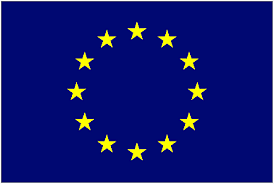EU set for clashes over post-Brexit budget

The EU is to unveil plans Wednesday for a bigger post-Brexit budget worth 1.279 trillion euros over seven years that is expected to spark fierce clashes in an already deeply divided union.
Poland and Hungary are up in arms over a proposal to link funding to respect for the rule of law while several countries refuse to contribute more to fill the hole left by Britain’s departure.
European Commission chief Jean-Claude Juncker and EU Budget Commissioner Guenther Oettinger will unveil the controversial plan after it is signed off by a meeting of commissioners in Brussels.
“We are going to make a proposal that I think strikes a balance between those who will pay more and those who accept cuts,” Oettinger told a television station in his native Germany.
European sources said the budget covering 2021-2027 will be worth a total of 1.279 trillion euro ($1.535 trillion), compared to a figure of 1.0 trillion euros for the current 2014-2020 multi-year budget.
The departure of Britain, a net contributor, in 2019 leaves the bloc with a 12 to 14 billion euro gap in its accounts, but the EU also wants more money for ambitious projects to unify the remaining 27 member states.
Key cuts -
One of the key proposed cuts will be six percent from the Common Agricultural Policy, the largest single area of EU spending and one dear to major farm producer France.
There is also an eight-percent proposed cut to so-called cohesion funds, which former Soviet bloc states in Eastern Europe are the biggest beneficiaries from.
In return, the European Commission wants to spend more on the digital economy, research, defence and protection for the bloc’s borders against mass migration, including what one European source said is a quintupling of the border force Frontex to nearly 6,000 people.
Oettinger will call for countries to increase their contribution to 1.1 percent of GDP for the new budget, up from the one percent for the current 2014-2020 plan, a European source said.
Countries including Austria and the Netherlands are already gearing up to fight any demand for increased national contributions, although France and Germany have said they are ready to pay more.
The plan is likely to cause fights on a number of other fronts.
‘Political pressure’ -
Firstly, Warsaw and Budapest, locked in battle with Brussels over democratic standards and their refusal to accept refugees, oppose any attempt to impose conditions on the billions in funds they get from the bloc.
They view it as an attempt to punish them indirectly, without going through mechanisms like an unprecedented sanctions procedure launched by Brussels against Poland over its court reforms.
“We will not accept arbitrary mechanisms which will make the funds an instrument of political pressure,” Poland’s deputy European affairs minister Konrad Szymanski said.
Secondly, the eastern states are also likely to oppose both the cuts to cohesion funds overall, and also demands from southern nations like Spain and Italy that were hit by the economic crisis for some of those funds to be redirected.
Thirdly, protests by French farmers are likely over any attempt to cut the Common Agricultural Policy, from which they are the biggest beneficiaries.
Farm funds account for 37 percent of the bloc’s funding, while cohesion funds account for 35 percent.
Finally attempts by Brussels to push through the budget before the next European Parliament elections in May 2019 have also met a cool response.
EU states say it is “impossible” given the rifts between east, west, north and south, with countries anxious not to put their hands in their pockets at a time when populism is on the march.
“These negotiations normally take two years,” a diplomatic source told AFP.